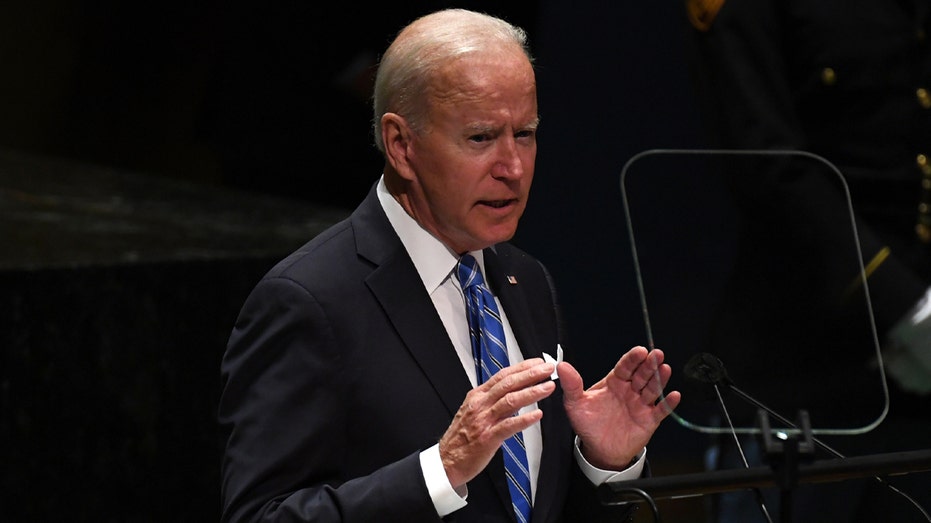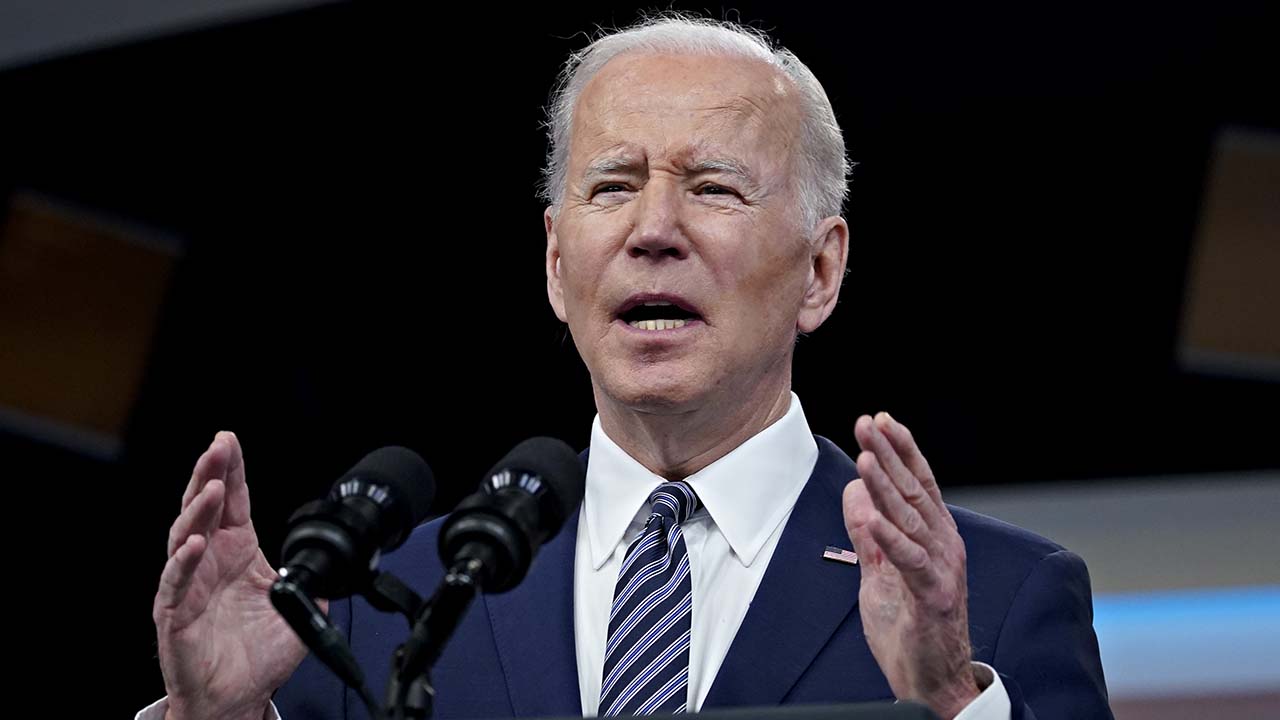How would Biden's proposed $5.8T budget affect the economy?
Biden's budget would modestly increase GDP, reduce debt
Economic expert pins record inflation on Biden and Democrats
National Taxpayers Union Executive Vice President Brandon Arnold weighs in on President Biden blaming Putin for record-high inflation in the United States on 'The Evening Edit.'
President Biden laid out a sprawling, $5.8 trillion budget blueprint at the end of March that would moderately boost economic growth over the next few decades and gradually shrink the nation's deficit.
That's according to a new analysis published by the Penn Wharton Budget Model, a nonpartisan group at the University of Pennsylvania's Wharton School, which projected that Biden's budget proposal would increase GDP, the broadest measure of goods and services produced in the nation, by 0.3% in 2032 and 0.4% in 2050.
THESE STATES ROLLED BACK THEIR GASOLINE TAXES. OTHERS COULD FOLLOW
Biden called for more money for police, education, public health and housing in the request, including $795 billion for defense and $915 billion for domestic programs. The remaining money would go toward mandatory spending such as Social Security, Medicare, Medicaid and interest on the national debt.

President Joe Biden addresses the U.N. General Assembly on Sept. 21, 2021, in New York City. (Timothy A. Clary-Pool / Getty Images)
At the same time, the $2.5 trillion in tax hikes that Biden laid out as part of his budget request would reduce debt by 1.7% in 2050.
The higher taxes would largely be borne by Wall Street and the top sliver of U.S. households, in the form of a steeper corporate rate, a modified wealth tax and a global minimum tax.
"We are reducing the Trump deficits and returning our fiscal house to order," Biden said at the White House when introducing the budget, referring to the widening spending gap under former President Donald Trump. He said the budget "makes prudent investment and economic growth, a more equitable economy, while making sure corporations and the very wealthy pay their fair share."
The taxes outlined in the proposal include a minimum 20% tax on the incomes of U.S. households worth $100 million or more – similar to other proposals that Democrats floated last year to pay for Biden's massive spending plan. But those pitches fell to the wayside after talks with West Virginia Sen. Joe Manchin collapsed.

Night falls at the Capitol in Washington on Dec. 2, 2021. (AP Photo/J. Scott Applewhite / AP Newsroom)
The so-called "Billionaire Minimum Income Tax" would raise $361 billion in revenue over 10 years and apply to the top 0.01% of households, or about 20,000 Americans. The White House said that roughly half the revenue stems from the country's 700 billionaires.
Biden also proposed raising the corporate tax rate to 28% from 21% as part of his budget request and pitched a global minimum tax that's designed to crack down on offshore tax havens.
GET FOX BUSINESS ON THE GO BY CLICKING HERE
However, the tax increases are almost certainly dead on arrival: Democratic Sens. Kyrsten Sinema of Arizona and Joe Manchin already rejected the corporate tax hike and the billionaire's tax, respectively, dooming those proposals' odds in the 50-50 Senate.





















